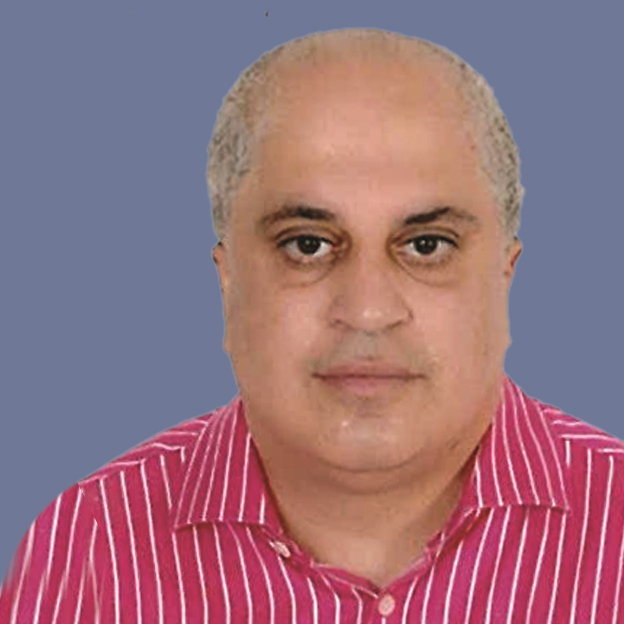Money
Thought Leadership Interview: Mahesh Sharma Dhakal
The Senior Deputy Chief Executive Officer of Global IME Bank on leadership and management..jpg&w=900&height=601)
Himendra Mohan Kumar
Late last year, Global Bank merged with Janata Bank Nepal to become Nepal's largest commercial bank in terms of paid-up capital. The merged entity commenced integrated transactions under the Global IME Bank name, with a paid-up capital of 24 billion rupees. Global IME Bank now has more than 300 branches, 295 ATMs and 33 extension counters across Nepal.
Mahesh Sharma Dhakal is the Senior Deputy Chief Executive Officer of Global IME Bank.
Himendra Mohan Kumar of The Kathmandu Post caught up with Dhakal to discuss his life and times. The following are the excerpts from a freewheeling interview with Dhakal.
What is your formula for getting things done?
To start early and engage all the resources at your disposal. Teamwork is essential for every project, which has to be target driven and result oriented. Further, there has to be continuous monitoring through structured mechanisms to ensure the final result is achieved. The process is important, but the result is most important. Hence, having team spirit, being target driven, being result-oriented, continuous monitoring and corrective measures are the basics.
What do you look for when you’re hiring your future employees?
Positive attitude and a dependable character. A big portion of learning is on the job learning. There will be a large pool of candidates available to any big company, and they will have the required qualifications, MBA, BBA, BCOM, CA, etc. However, you will have to differentiate on attitude and character that will determine how the employee will perform in the future. I look for employees that are self-driven, initiators, creative and trustworthy.
How do you build allies, not just within your own organisation, but in the broader industry with other leaders you compete with?
We are truly in a global economy where everyone and every organisation are interconnected and interdependent. Building allies is about finding a common ground that ensures a beneficial relationship to both parties. Competition should be fair, not foul where all the players will benefit. Competition generates energy and strength as well if we go in a coordinated way. The relationship has to be of giving and taking. No alliance will work if you only take and do not reciprocate.
What was the last experiment you did and it didn’t work?
One has to be flexible with his/her approach to others. In my earlier days, I may have tried to impose my style of work, ethics, and principles on others. However, everybody is built differently and everyone responds differently under a given set of instructions or situations. I realised later on in my career that an adaptable approach to employees and peers, without compromising my values, was the best way to motivate and drive the organisation forward. You need a consultative approach.
What’s the hardest decision——personal or professional—you’ve had to make?
This job requires a lot of dedication and hours. The higher you go, the more accountability and responsibility rests on your shoulders. Your family now expands to include all the thousands of employees that look to you for guidance and direction. All of this means that you are able to dedicate fewer and fewer hours at home. The decision to ascend is among the hardest on you in your career.
Professionally, while I was with a public sector bank in the earlier years, there was an opportunity for me to move forward in a higher management role. However, I had to make a choice between this role and a slightly lower grade role in the private sector. For various reasons, I chose the private sector after taking advice and guidance from a few of my friends and seniors. This was amongst the most difficult professional choices that I have had to face.
How do you cope with criticism?
If the criticism comes when you have done nothing wrong, then that is absolutely negative.
However, when you are engaged positively in your project and work, then it warrants differing views and reviews. Regardless of how good you are, even if you are the Lionel Messi of football, he will not do well against a large team alone. Criticism feeds your work and your projects, and an openness towards it has always improved my final delivery.
Why do you think the private sector is better than serving in public office?
I do not claim that the private sector is better than serving in public office. If you are looking at banks and financial institutions, yes there is a difference in remuneration, but that alone does not translate to being better.
It is also true that the private sector has quicker decision making, makes better use of technology and is equipped for the smart future. However, the environment of fulfilment with your work is created by you, your co-workers and your peers. In this regard, wherever these conditions are met, that is a good place to be.




 24.28°C Kathmandu
24.28°C Kathmandu














